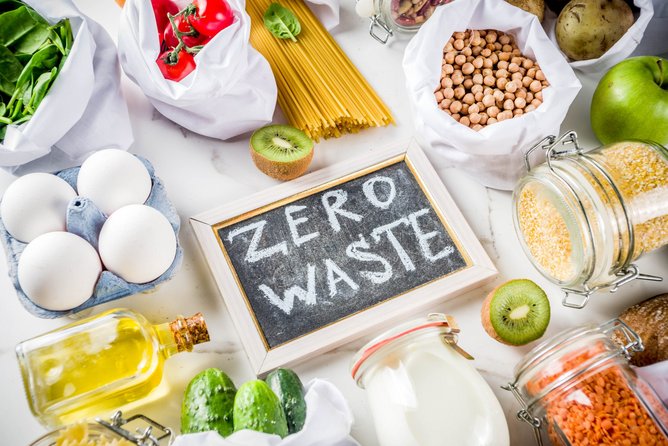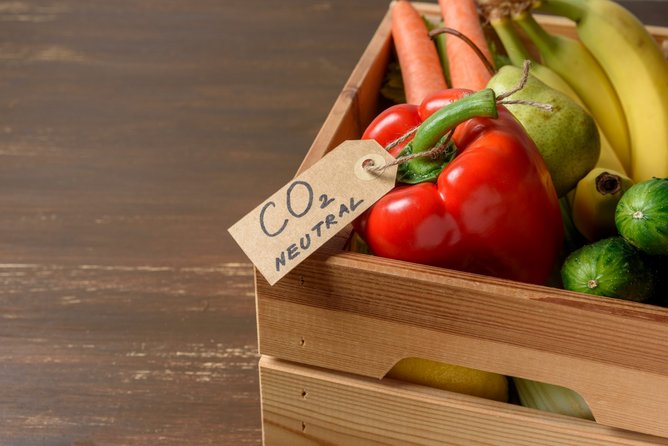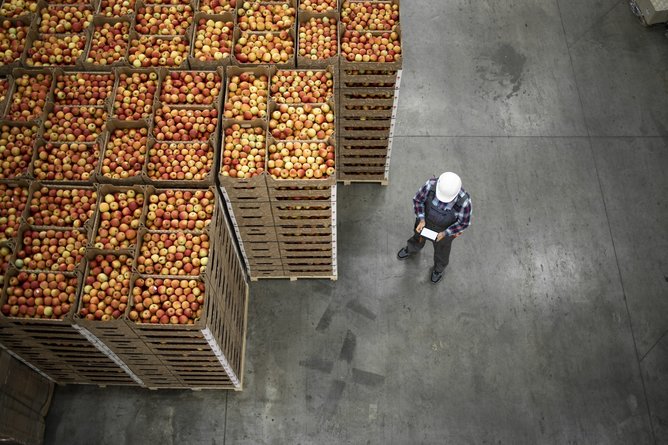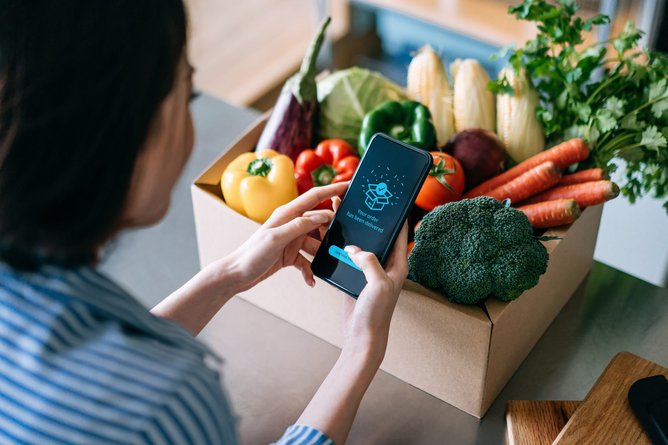Capgemini: Sustainable sourcing & intelligent supply chains

As food prices rise, supply chain challenges increase, and organisations emerge from the impact of COVID-19, growing sustainability concerns are significantly shaping consumer behaviour.
Compared to 2020 (33%), 72% of consumers today are aware of their food wastage, according to Capgemini’s latest report - ‘Reflect. Rethink. Reconsider. Why food waste is everybody’s problem’.
Consumers look for ways to reduce food waste

According to the report, 74kg of food per person is wasted each year by consumers. Aware of this, consumers are keen to reduce their food waste, with an 80% year-on-year growth in social media searches for methods to increase the life of food.
Cost savings (56%), concerns relating to world hunger (52%), and climate change (51%) were some of the key reasons for increased consumer awareness.
Eager to change, consumers feel that this is an area that needs help from brands and supermarkets that supply to them, with 62% aware of the waste of resources that comes with food production (land, water, labour etc.).
According to the report, 61% of consumers want brands and retailers to do more to help tackle food waste and 57% are disappointed with businesses, feeling that they don’t care enough about the issue.
Organisations attempt to take action
While organisations report that they are taking action to tackle food waste in stores, in consumers’ homes and providing tips to ensure leftovers are not wasted, consumers believe that these actions are not enough.
Key findings:
- 60% of organisations report that they help consumers understand ‘best before’, ‘consumer by’, and expiry date’, but only 39% of consumers are satisfied that the information is clear.
- 63% of organisations report that they provide loose product options, but only 42% of consumers are satisfied.
- 63% of organisations report that they are removing confusing labels on packaging, but only 43% of consumers are satisfied.
- 54% have reduced bulk-buy discounts that encourage over-buying and food waste, but only 46% of consumers are satisfied.
The benefits of reducing food waste for organisations
Out of 700 food manufacturers, retailers and service providers, 50% found that investment in measures to reduce food waste increased their return on investment (ROI) 14-fold or greater.
Capgemini’s report also found strong connections between food waste-related initiatives and business benefits such as cost savings, increased revenue, and new revenue streams. The report identified that 91% of consumers are willing to buy from brands and retailers that disclose information on their food waste, with 58% willing to increase their spend with companies taking active steps to manage waste.
Organisations can also benefit from an ESG standpoint when committing to food waste reduction initiatives. With food loss and waste responsible for 8% of global emissions, food waste management programmes are a top priority for 90% of organisations to tackle climate change and conserve natural resources.
“The increased awareness amongst consumers and the initiatives being taken by businesses to tackle food waste is a positive step forward”, said Tim Bridges, Global Sector Lead, Consumer Products, Retail and Distribution at Capgemini.
He added: “With the help of technology, organizations can track and assess food waste at every stage of the food value chain to enable action at the right time, while also engaging with their consumers by inculcating waste-avoiding behaviours and making them an active participant in waste reduction. An agile, intelligent supply chain can also enable an effective collaboration across the value chain to create a sustainable and future-ready ecosystem.”

A fragmented food supply chain
Despite 77% of organisations being committed to the United Nations’ Sustainability Development Goals (SDGs), only 15% of organisations have achieved or are on track to achieve their targets. With 2030 round the corner, organisations will need to be quick to mobilise in order to meet their ambitious targets.
According to the report, this is due to the fragmentation of the food industry’s supply chain. Despite many focusing their efforts on upstream logistics and processing and packaging, few are giving the same level of attention to agricultural production, downstream storage, suppliers, and consumers.

Challenges to success in food waste initiatives
Capgemini’s report highlights five top challenges faced by organisations in the industry to be successful in food waste reduction:
- A lack of / limited data sharing both to and from suppliers in the supply chain
- Government regulations on waste disposal
- Lack of adequate resources, skills and knowledge
- Challenge of integrating new and existing systems and tools
- Prioritisation of other issues
Technology’s role in food waste reduction
The report concludes by identifying three recommendations for organisations to fight against food waste with the help of technology.
1. Engage consumers and employees in food waste management initiatives
In order to limit food waste, action needs to be taken across the entire value chain. With nearly half of consumers (45%) still unaware of the link between food waste and climate change and 79% believing the misconception that the aviation industry has a larger carbon footprint than food waste, organisations need to use their influence to drive an increase in awareness.
People need to have simple messages to shake them up. Organisations can work with cooking shows, for example, to spread the message with episodes focusing on food waste. I think tapping into mainstream media opportunities and integrating this messaging is extremely powerful,” said Jessica Raneri Nutrition Sensitive Agriculture Advisor to the Australian Centre for International Agricultural Research.
Effective use of information technology can help organisations to drive awareness among their consumers.
“Retailers have so much to win when they insert data into the food system. Our dynamic pricing approach creates the business cases benefit up and downstream in the value chain [...] We need to use data to educate, to create actionable awareness, but also to support consumers to cook with what’s in the fridge sustainably,” said David Kat, VP Business Development at Wasteless.

2. Collaborate across the value chain
In order to successfully tackle food waste, all stakeholders along the value chain need to collaborate.
“The solutions are in collaboration and innovation. Today organisations are not paying enough attention to influencing the entire food chain to reduce waste. For instance – demand-driven production is not trickling down the entire food chain. Procurements and supply chains have very different KPIs. A retailer’s KPI model needs to include having the lowest possible waste throughout the supply chain,” said Toine Timmermans, Director at Stichting Samen Tegen Voedselverspilling.
Technology solutions such as demand forecasting, temperature monitoring, inventory management, geographic information systems (GIS) mapping, and remote sensing were rated by organisations as easy to implement and highly impactful.
Previous research from Capgemini highlighted that 60% of global organisations are increasing their investment in supply chain digitalisation. Being smart in the use of information technologies along the food supply chain can help to drive standards, transparency, real-time information, and a reduction in food waste.
Organisations should be looking to build resilient, transparent and intelligent supply chains to tackle this challenge. In addition, investment in supply chain analytics, AI, machine learning, local supply chains, and IoT-enabled cold chain solutions can also benefit organisations.

3. Monitor and govern food waste management initiatives
While it is important to implement technologies, adopt new approaches and establish clear initiatives, these can only be effective if they are conducted systematically as part of a well-established strategy that is effectively measured.
Leading companies in this area are using technology and taking a system-based approach to managing food waste through precision metrics.
Technology can help organisations to grade food products based on quality and edibility to improve efficient waste processing, sending lower volumes to landfills. Leading organisations in this area have also implemented waste-tracking systems to accurately assess the magnitude of waste, as well as setting up clear governance targets to monitor progress.

To read the full Capgemini report, click here






